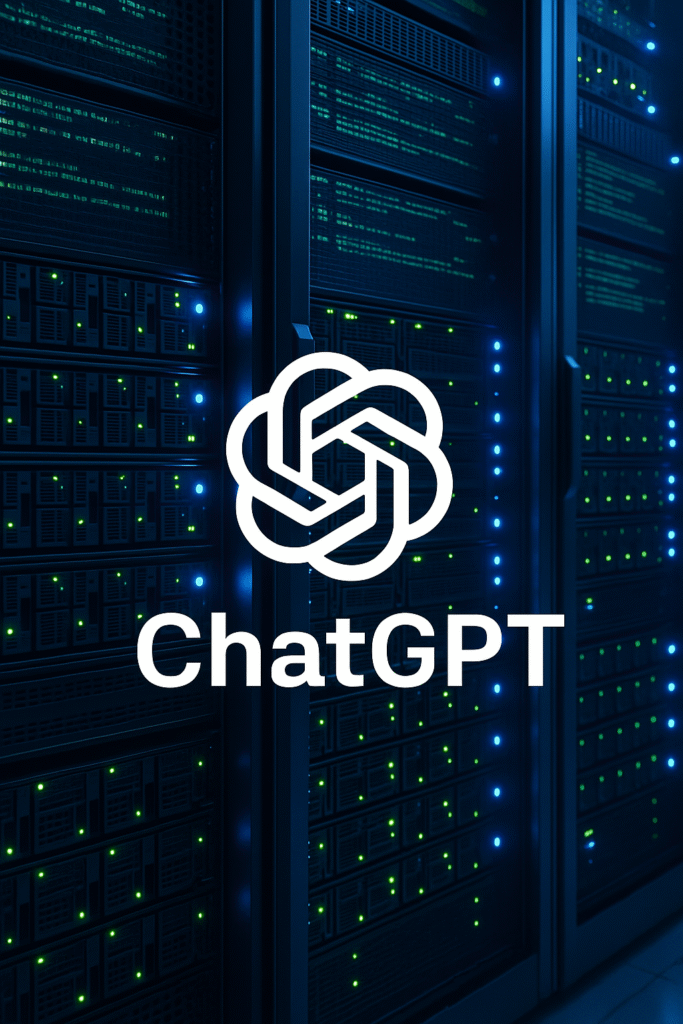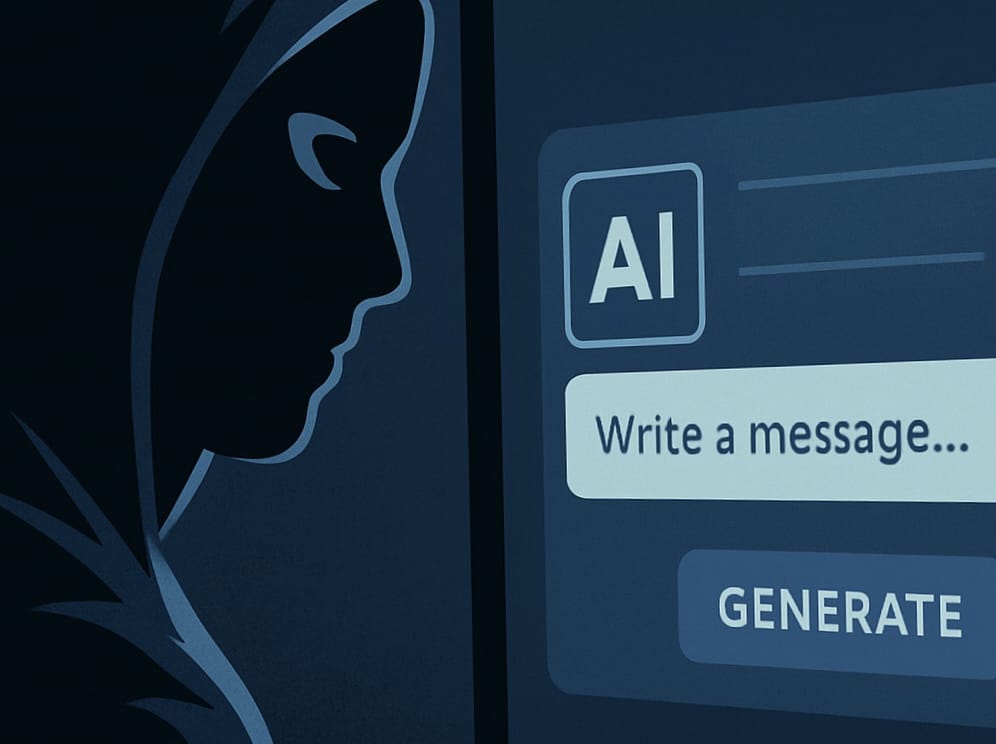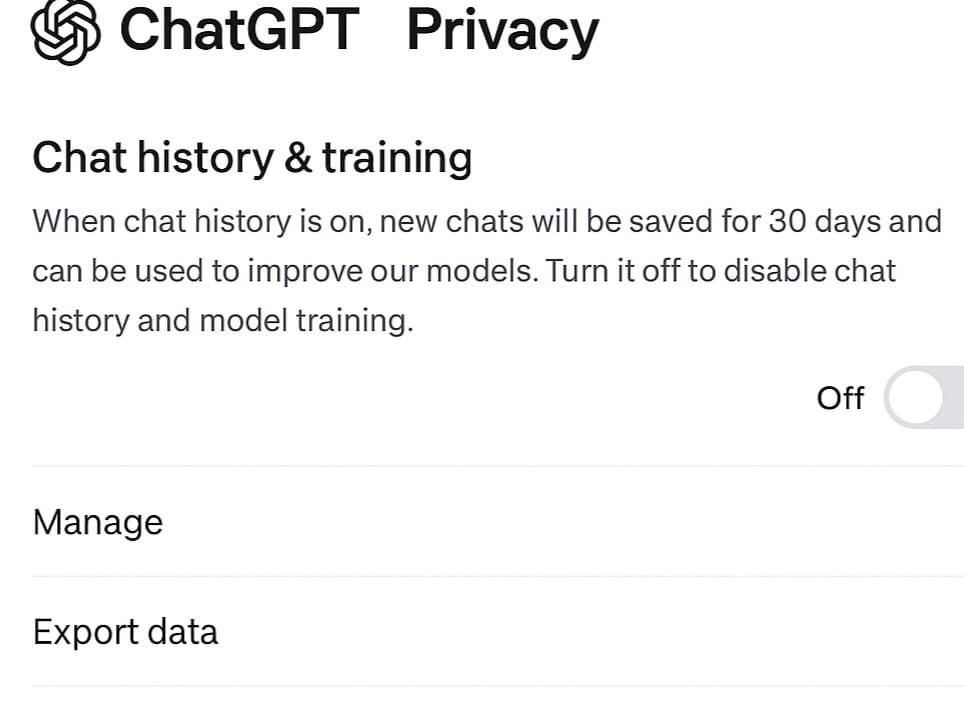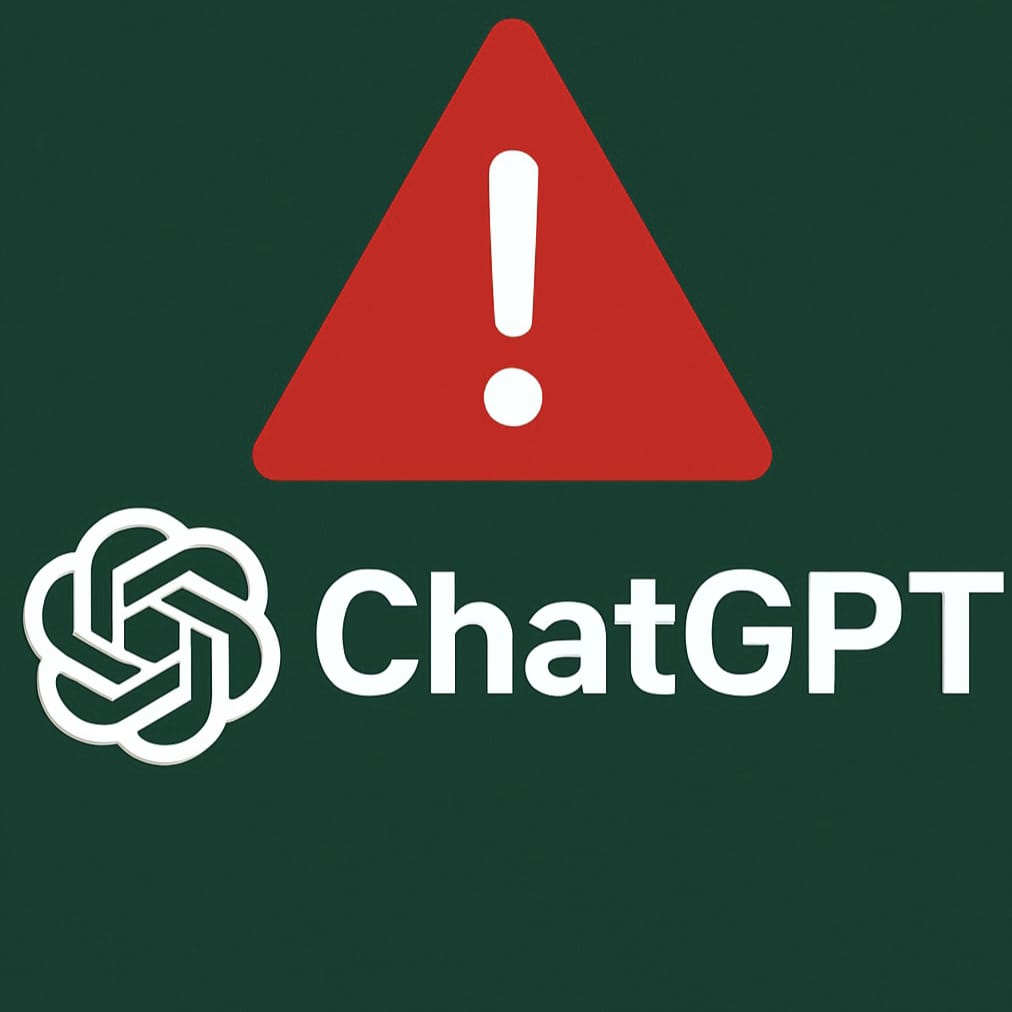The Alarming Truth Behind AI Conversations & Data Storage You Must Know

“ChatGPT data privacy is a major issue most users ignore while typing deeply personal prompts.”
What Is ChatGPT Data Privacy and Why You Should Be Concerned
It’s late at night. You’re pouring your heart out into ChatGPT—talking about your fears, secrets, maybe even confessing things you’ve never told another human. You trust it because it feels private. But what if everything you type is stored forever—and could even be used against you one day?
That’s not just paranoia. It’s a real, growing concern, backed by reports, privacy watchdogs, and legal experts. So if you think your ChatGPT chats are safe from prying eyes… it’s time to think again.
🧠 What Does OpenAI Say About Chat Data?
OpenAI, the creator of ChatGPT, states in its Privacy Policy that:
“We may use content submitted to ChatGPT to improve model performance. We may also share this data with third-party providers and authorities if required.”
Let’s break that down:
- “We may use your content” – meaning your chats are recorded.
- “To improve performance” – which involves human review and storage.
- “Shared with third parties” – that could be law enforcement, partners, or external services.
So, your supposedly “private” conversation is not private at all. It’s just masked with a clean interface—but everything behind the scenes is stored, reviewed, and sometimes retained indefinitely.
AI in 2025: Breakthroughs, Dangers, and What the Future Holds
“With the rise of AI assistants, ChatGPT data privacy is more critical than ever.”
Can ChatGPT Data Privacy Be Breached in Legal Cases?
According to multiple global legal experts, YES—your AI chat data can be subpoenaed and used in court. Let’s look at how:
⚖️ 1. Data Is Stored on Servers
All your prompts, chats, and even context are stored on OpenAI’s servers. Unlike local software, nothing is saved on your machine unless you manually export it.
⚖️ 2. No True “Delete Forever” Option
While you can delete your chat history from your dashboard, OpenAI retains the right to store logs internally for model training and moderation purposes.
⚖️ 3. Law Enforcement Requests
In certain jurisdictions, if authorities serve OpenAI with a valid warrant, your conversation logs can be disclosed. This could happen in:
- Criminal investigations
- Civil lawsuits
- Government surveillance programs
That’s right—your ChatGPT conversation could show up in a courtroom transcript someday.
“Many users assume their chats are private, but ChatGPT data privacy is not guaranteed by OpenAI’s terms.”
Koala AI: ब्लॉगिंग और SEO के लिए आपका AI साथी | पूरी गाइड 2025
🧨 Real-Life Cases: When AI Chats Crossed the Legal Line
🕵️♂️ 1. The Insider Trader Chat
In 2024, a US-based employee at a financial firm used ChatGPT to simulate risky investment strategies, accidentally leaking confidential insider information. The data was flagged during moderation, leading to an internal probe. The company traced the prompt through OpenAI and terminated the employee.
🔍 2. The Therapy-Like Confession
A college student used ChatGPT to explore a hypothetical crime scenario. Due to certain trigger keywords, AI flagged the prompt for review. Days later, the student received a visit from local authorities questioning his mental health.
These stories aren’t hypothetical fiction—they’re chilling warnings about how even innocent prompts can spiral into surveillance nightmares.
📉 What Happens When You Type Secrets into AI?
If you’ve ever typed:
- Bank account numbers
- Passwords
- Illegal activities (even hypothetically)
- Sensitive mental health disclosures
- Workplace or government secrets
Then congratulations—you may have fed sensitive data into a system that doesn’t forget.
Even OpenAI recommends:
“Do not share any sensitive personal information with ChatGPT.”
Yet most users do this without reading the fine print.
Canva AI Canva AI tutorial Canva video editing

🕸️ How ChatGPT Collects and Uses Your Data
Here’s a quick overview of how your chat data flows:
| Action | What Happens Behind the Scenes |
|---|---|
| Typing a prompt | Prompt is sent to OpenAI’s servers via HTTPS |
| Generating response | Server logs conversation & related metadata |
| Storing chat | Prompt & response are stored under your account |
| Deleting chat | Interface hides it, but logs may remain internally |
| Reviewing flagged chat | OpenAI moderators may review for safety/compliance |
| Law enforcement request | Data may be shared upon legal demand |
This entire pipeline is designed for optimization and regulation compliance, not absolute privacy.
😱 ChatGPT Data Is a Goldmine for Surveillance
In an age of:
- AI-generated fraud
- Deepfakes
- Misinformation
- Cybercrime
Governments are tightening AI surveillance policies. And AI platforms like ChatGPT are prime targets for monitoring. As countries like India, the US, UK, and EU ramp up digital data laws, AI conversations are no longer in the shadows.
UK Healthcare’s Digital Revolution: NHS to Prescribe Apps, Online Therapy & AI Cancer Screening
The Essential Guide to Securing Your ChatGPT Conversations
Now that you know the truth—that your ChatGPT chats are stored, reviewed, and possibly used as legal evidence—it’s time to act. You don’t have to stop using AI tools, but you must start using them wisely.
Here’s everything you need to know to protect your data, privacy, and digital identity while using ChatGPT.
⚙️ Step 1: Turn OFF Chat History in Settings
OpenAI allows users to disable chat history, which helps reduce what gets stored on their servers.
✅ How to Disable Chat History:
- Go to ChatGPT > Settings
- Select Data Controls
- Toggle OFF Chat History & Training
🔐 When turned off, your chats are no longer used to train AI models, though they may be retained for 30 days for abuse monitoring.
While this doesn’t guarantee full deletion, it does significantly reduce OpenAI’s long-term storage of your conversations.

❌ Step 2: Never Enter Sensitive Information
Here’s a golden rule: If you wouldn’t write it in a public email, don’t type it into ChatGPT.
⚠️ Avoid Typing:
- Passwords or recovery codes
- Bank account numbers or financial details
- Health records or private diagnoses
- Legal confessions or hypothetical crimes
- Work-related secrets or trade info
- Anything that could be misunderstood legally
AI is not a lawyer. And it’s definitely not a therapist. Don’t use it as one.
🧽 Step 3: Understand “Delete” Doesn’t Mean Erase
When you delete a chat from your ChatGPT history:
- It’s removed from your visible dashboard
- BUT it may still be retained internally by OpenAI for 30+ days
This is especially true if:
- You triggered a flagged prompt
- You violated usage guidelines
- You used ChatGPT with history enabled
🔍 In legal terms, data can still be retrieved through forensic recovery or legal subpoena.
Why Are Humans More Prone to Cancer? UC Davis Study Reveals Genetic Clues
🌐 Step 4: Use a VPN or Anonymous Browsing Mode
To further reduce your digital footprint:
- Use VPN services to mask your IP address
- Browse in Incognito or Private Mode
- Avoid linking ChatGPT to Google or Microsoft accounts
- Log out after sessions
“Using a VPN won’t solve everything, but it helps protect your ChatGPT data privacy by masking IP addresses.”
📩 Step 5: Export Your Data—See What They Know
OpenAI lets you export all data associated with your ChatGPT account.
📥 How to Export:
- Go to Settings > Data Controls
- Click Export Data
- You’ll receive a downloadable archive via email
Review it. You might be shocked by how much the AI “remembers.”
🛑 Step 6: Beware of Prompt Injection and AI Phishing
AI doesn’t just respond—it can be manipulated.
Hackers have found ways to:
- Inject hidden code into prompts
- Trick AI into leaking data
- Simulate user queries for identity theft
If you receive a link or code suggestion in a ChatGPT conversation, don’t click it unless you verify its origin.
Gambling: A Shortcut to Ruin in the Name of Quick Riches

⚖️ Know Your Rights: Is AI Chat Data Protected by Law?
Laws are evolving fast—but right now, AI chat data falls into a legal grey zone.
🌍 Here’s how it works globally:
| Country | AI Chat Data Protection | Can Be Used in Court? |
|---|---|---|
| USA | Not fully protected under HIPAA or FERPA | ✅ Yes |
| India | No dedicated AI data law yet | ✅ Yes |
| EU (GDPR) | Partially protected if identified as personal data | ❌ With strong legal defense |
| UK | Similar to GDPR, but with national security clauses | ✅ In criminal cases |
| Canada | Protected under PIPEDA, but varies | ✅ With warrant |
🛡️ Bottom Line: If your data helps or harms a case—it can be requested.
🔁 Alternatives: AI Tools That Offer Better Privacy
If you’re looking for safer options than ChatGPT, here are a few:
🧠 1. PrivateGPT
- Open-source
- Local storage only
- Requires setup, but no cloud logs
🔐 2. Anthropic Claude (Pro Version)
- Better user-side controls
- Clearer data retention policies
🔐 3. Google Gemini with Privacy Mode
- Still evolving but allows better user data controls
☑️ Choose tools that offer local data control, no auto-logging, and GDPR compliance.
⚠️ Warning: What Happens If You Ignore This?
If you continue using ChatGPT without considering privacy:
- 🧾 Your data could be subpoenaed in court
- 🧠 Your mental health disclosures may be flagged
- 🔒 Your identity could be pieced together
- ⚠️ Your job or future security clearance might be affected
- 🕵️ You risk becoming a target for cyber exploitation
In short: Your private words could become public weapons.
🧠 Gen Z Mindset and Relationships: Unveiling the Psychology of a Connected Generation (2025)
✅ Final Checklist: Safe ChatGPT Usage Tips
✔️ Turn OFF chat history
✔️ Don’t share personal, legal, or financial info
✔️ Export your data and audit regularly
✔️ Use VPN and Incognito
✔️ Treat ChatGPT like a semi-public journal
✔️ Explore AI alternatives with better privacy
🧠 Conclusion: Use ChatGPT Smartly—Not Secretly
AI is a powerful tool—but it’s not your friend, not your therapist, and definitely not your secret diary. Everything you say could come back to you in unexpected ways.
So before you type your next thought, confession, or secret into that glowing prompt box… ask yourself:
“The best way to handle ChatGPT data privacy is to treat AI like a public forum—never type anything you can’t defend later.”
